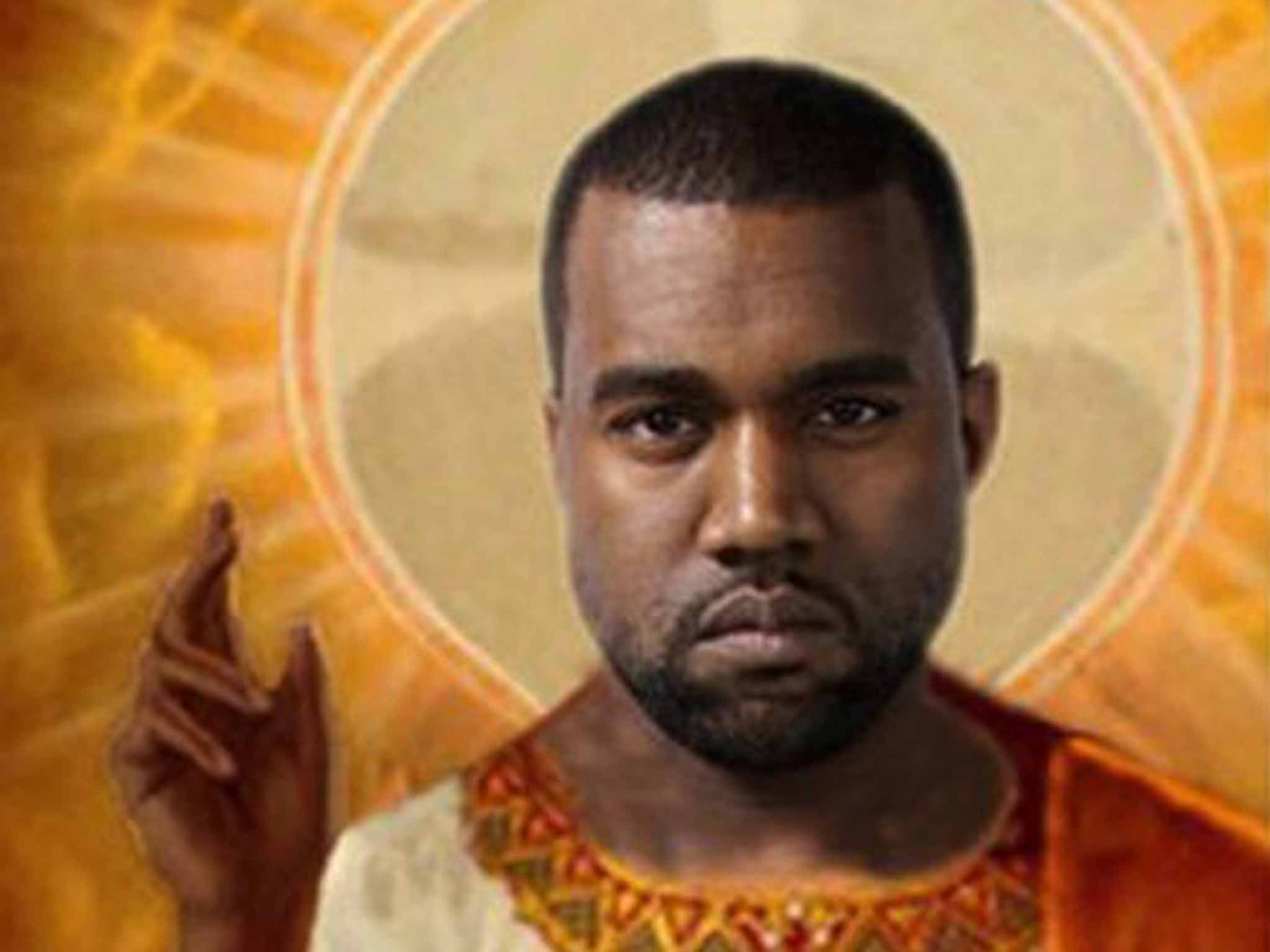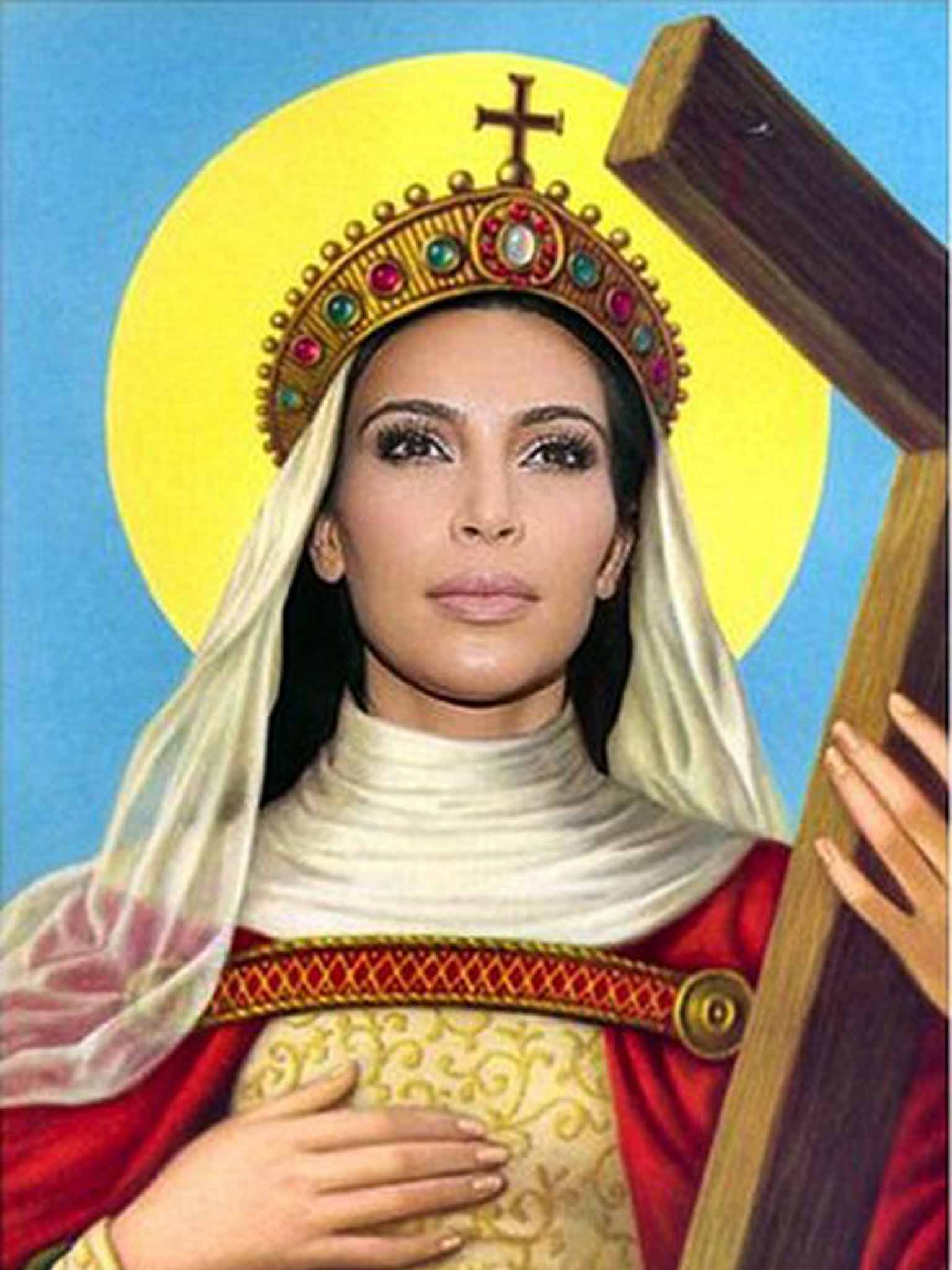Saint West: Kanye West, Kim Kardashian, and the meming of life
No sooner had the king and queen of Insta-hip-hop announced the birth of an heir than visual gags about the baby's name flooded in. Rhodri Marsden doffs his hat

Your support helps us to tell the story
From reproductive rights to climate change to Big Tech, The Independent is on the ground when the story is developing. Whether it's investigating the financials of Elon Musk's pro-Trump PAC or producing our latest documentary, 'The A Word', which shines a light on the American women fighting for reproductive rights, we know how important it is to parse out the facts from the messaging.
At such a critical moment in US history, we need reporters on the ground. Your donation allows us to keep sending journalists to speak to both sides of the story.
The Independent is trusted by Americans across the entire political spectrum. And unlike many other quality news outlets, we choose not to lock Americans out of our reporting and analysis with paywalls. We believe quality journalism should be available to everyone, paid for by those who can afford it.
Your support makes all the difference.It was always unlikely that the birth of a child to Kim Kardashian and Kanye West would go unremarked upon online, still less the announcement of his name. The last time this happened, in June 2013, Twitter and Facebook buckled under the weight of people making the same joke about the newly born North West one day unveiling her own fragrance called North By North West; the relentless repetition of this weak gag almost became a mesmeric incantation. But that's the primary effect of news on social media these days, whether it's bilateral climate talks or celebrity hijinks; the day is ultimately won by the person who makes the best joke. And the competition is relentless.
The unveiling of the name Saint West prompted an inevitable flurry of Photoshopped pictures of the boy's mother and father recast as biblical characters; these competed for our attention with the standard reaction shots of famous people (or statues) looking either shocked or appalled, and captioned with “They called it WHAT?” (or similar).
As soon as a story breaks, the race is on. It starts with a few tweets, then within minutes the first pictures appear, distilling those ideas into a more easily shareable form – with extra points if you include a cat. People coming late to the party then see these images, fail to understand what's going on, scroll down to find out what the news was and then finally get the joke. Weirdly, that's how huge numbers of people now consume news.

Topical humour has become one of the most effectively crowdsourced things known to mankind, with tens of thousands of people immediately knuckling down to think of an angle; every single one will have been explored within a 12-hour period, with the best ones rising to the top in a flurry of celebratory likes and retweets. These are the new currency; we're desperate for our wit to be appreciated by a global audience, and we're happy to put the time in to try make it happen.
And if I'm sounding vaguely contemptuous of this behaviour, I should confess that two days ago I combined David Cameron's “You Ain't No Muslim, Bruv” quote with an old TV advertisement for Kwik Fit, driven by precisely the same impulse, and put it on YouTube. It got a handful of retweets, a few likes. I'll do better next time. I know I will.
The Saint West jokes were, on the whole, pretty average – but that may be because they paled in comparison to a post by Twitter user @KLLLRudy from 22 June this year: “Watch Kanye name his kid ”Saint“ or some stupid shit”. Dug up and retweeted some 120,000 times and counting, it blew everything else out of the water; a lesson that soothsaying can very easily trump satire.
Join our commenting forum
Join thought-provoking conversations, follow other Independent readers and see their replies
Comments